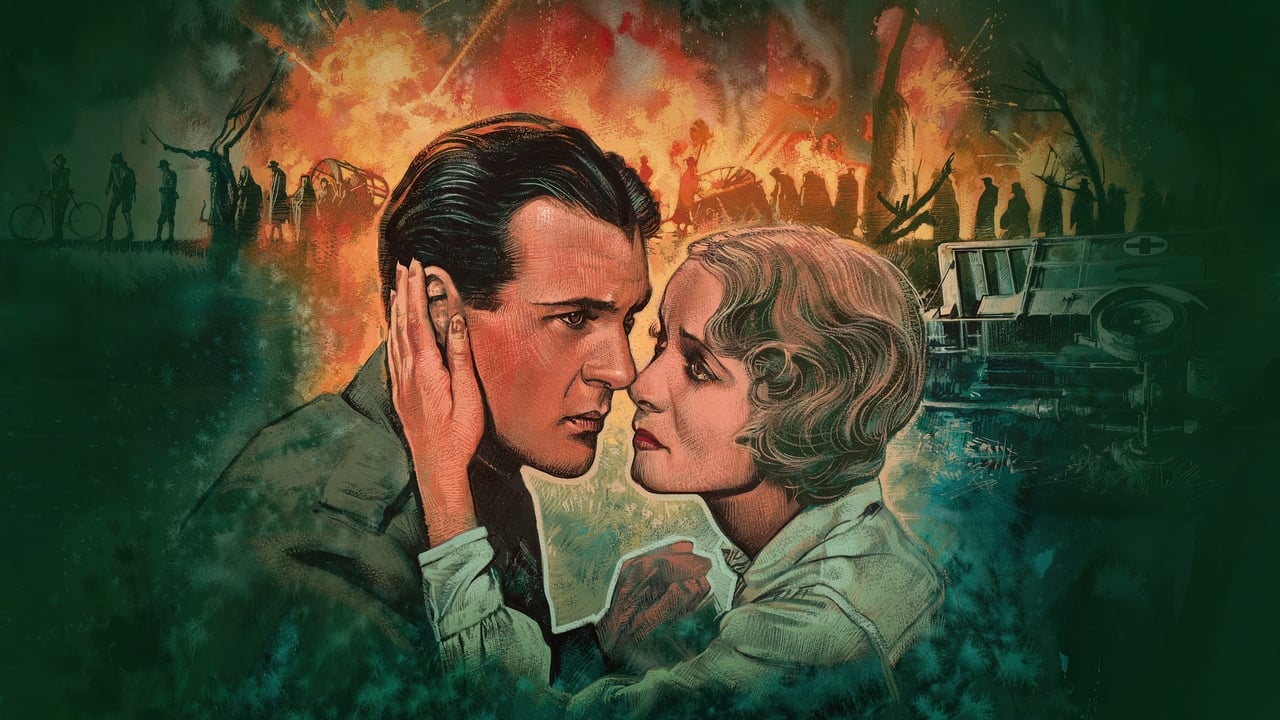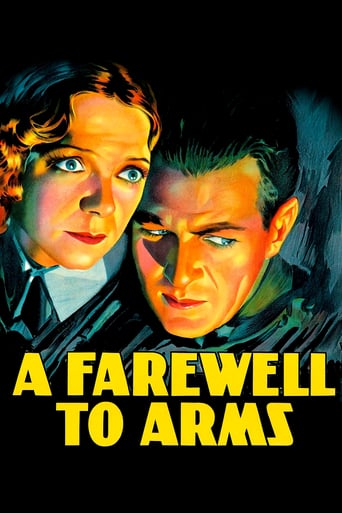

I can't speak to this film's worth as an adaptation of the Hemingway novel, as I've never read it, but it's an excellent film. Borzage lost little of his talent when he moved to sound. This is a rare film from the era where the camera moves almost constantly, and there are many clever filmmaking conceits throughout (most notably the long POV sequence after Gary Cooper is first paralyzed). Cooper stars as an American fighting for Italy in WWI. He falls for nurse Helen Hayes, though they are not allowed to marry. That can't keep them apart, though, and when he goes back to fight she goes off to Switzerland - secretly pregnant. The two have vowed to write each other, but a conspiracy keeps their correspondences from reaching each other. This is pure melodrama, and by the end it turns into an unabashed weepy, but it's beautiful throughout, quite romantic and downright sexy at times. Both Cooper and Hayes are fantastic. Adolph Menjou as Cooper's best friend and Mary Philips as Hayes' do well in the major supporting roles.
... View MoreBased on the Ernest Hemingway novel and starring Gary Cooper, this has the potential to be a classic. The setting and sentiment are reasonably original, especially for their time, and the movie is reasonably gritty.Yet, it doesn't feel like a classic. The romance seems trite and contrived. Overly schmaltzy and sometimes just plain dull. The acting is patchy. Gary Cooper is okay, but Helen Hayes' performance is quite flat. Most entertaining performance comes from Adolphe Menjou as Rinaldi. It was probably quite good in its time, and might well be regarded as one of the first anti-war movies, but it now feels quite dated.
... View MoreThis film has, at the beginning several instances of behavior that many films utilize that make me wonder if the behavior was intended by the author, director, or actor. A natural plot point was exhibited when the ambulances were going uphill & someone in back pleaded for the truck to stop because a wounded soldier was 'bleeding to death'. The ambulance could not stop because it was on a grade and stopping was impossible. This would show the cruelty of war. However, when the ambulance reaches the hospital the lieutenant in charge of the ambulance flirts with nurses before arranging for off-loading patients at the hospital. Gary Cooper, as Lieutenant Henry, does his cute-character bit while wounded soldiers are dying in the ambulances.Did the author intend for the lieutenant to behave with such cruelty? The lieutenant will later desert out of love for his wife. Maybe his whole manner is of a self-involved dandy. But the author has characters mentioning the cruelty of war all the time. But if these people are cruel also, how can they complain.The character doctor Rinaldi says something along the lines that Christians should not mind being killed, presumably because they go on to their 'reward' of heaven. Did the author write this? Did the author intend the flippant way that the doctor says it? The director shoots a shot of an uncaring lieutenant immediately after the ambulance attendant complains that a soldier is bleeding to death. Was this the intention of the author, the director (or editor) making a statement of their own. Maybe this was a decision by Gary Cooper.The nurse and lieutenant may complain about the cruelty of war, but their whole affair was the result of them volunteering to be there. Then they proceed to abandon there posts repeatedly.To me any case to be made for the importance of humanity is undermined by everybody in the 'play' lacking it. The doctor friend of Henry keeps calling Henry his baby & then proceeds to destroy his life by pushing him to alcoholism. Each character seems to say 'I'm human and it is important to be human' & then proceeds to do something cruel. Presumably, the war only ended because of exhaustion and not because of intelligent human thought.I guess what confuses me is the way the characters (or actors) work very hard, which tends to make me sympathetic to them, but when their behavior is cruel a dissonance is created.
... View MoreHelen Hayes is a World War I nurse who falls for wounded soldier Gary Cooper. The war, and Adolphe Menjou, threaten to come between them...This film features some startling, indelible images. The acting is also first rate. Mr. Cooper and Ms. Hayes make their characters' courtship very believable - with performances transcending what could be acted, or shown on-screen, at the time. Their closing scene is classic. Mr. Menjou leads a strong supporting cast; interestingly, his interest in Cooper looks highly ambiguous, intentional or not. Arguably, Menjou's character shows more interest in him than her.The story is just a little too soapy; and, it lacks a certain cohesion. It's unsteady, at times. Yet, director Frank Borzage elicits some dazzling performance and images in "A Farewell to Arms".Peace. ******** A Farewell to Arms (12/8/32) Frank Borzage ~ Helen Hayes, Gary Cooper, Adolphe Menjou, Mary Philips
... View More